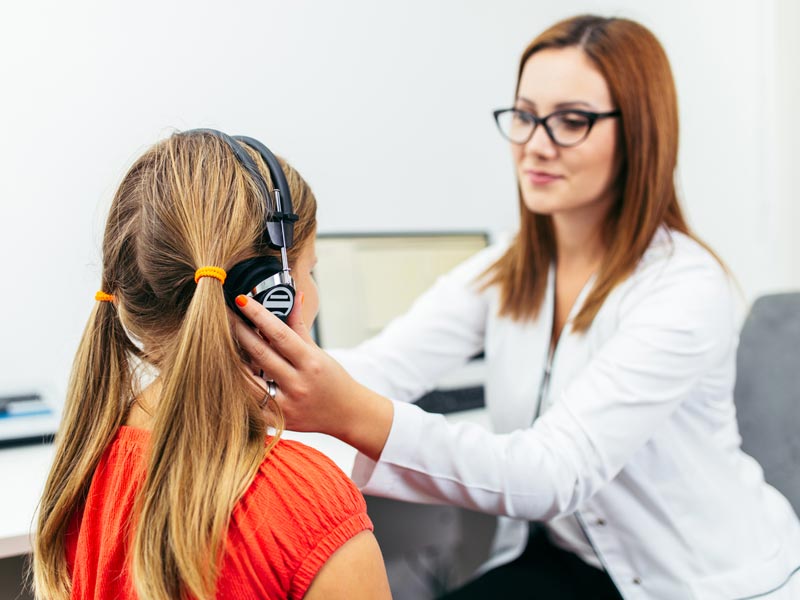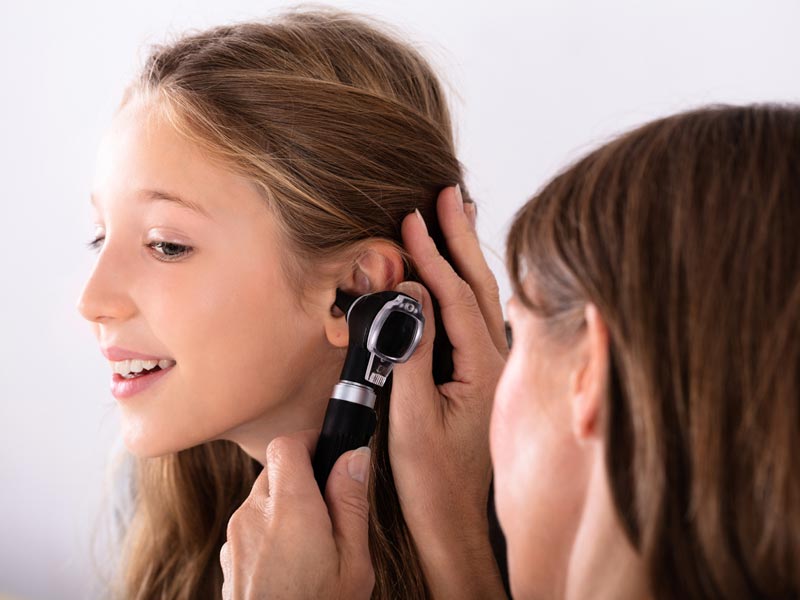With mandated newborn hearing screening in all 50 states infants receive a screening at the hospital within the first 24-48 hours after birth. Infants as young as 3 months old who are born with hearing loss can be diagnosed and fitted with hearing amplification by 6 months of age. However, it is possible for an infant to pass the newborn hearing screening, but show signs of hearing loss over time.

Hearing Loss in Children
There are 3 types of hearing loss: sensorineural, conductive and mixed. Appropriate treatment options will be recommended by our physicians and audiologists based on the type and severity of your child’s hearing loss. Here at Queen City ENT, treatment options include medical or surgical methods, bone-anchored hearing aids and conventional hearing aids. Our audiologists will work with your school’s audiologists as needed to ensure the best quality of care for your child.
It is important to seek medical attention if you have any concerns with your child’s hearing. We recommend monitoring your child’s hearing (with or without concerns) annually to look for changes since hearing loss is often progressive. Earlier treatment for hearing loss results in better outcomes.

Possible Causes of Hearing Loss
- Genetic congenital hearing loss
- Genetic syndrome (Down syndrome, Waardenburg syndrome, Treacher Collins syndrome, etc.)
- Infection passed from a mother to a fetus in the womb (rubella, herpes, etc.)
- Premature birth
- Side effect of medication used by the child or by the mother while she was pregnant
- Drug or alcohol abuse by the mother while pregnant
- Infection (mumps, measles, etc.)
- Head injury
- Ear infections
- Noise exposure

Signs of Hearing Loss in Children
- Delay in speech and language development
- Not startled by loud sounds
- Cannot tell where sound is coming from
- Poor performance in school
- Behavioral problems
- Listens to the TV at a loud volume or sits close to the TV
- Has trouble understanding others
The American Speech-Language-Hearing Association (ASHA) has developed a list of age-related norms for speech, language, and hearing development. Although children all develop in their own time, these milestones can help you determine when to seek medical intervention for your child. For detailed information on milestones and ways to help your child develop speech and language, click here to visit the ASHA website.
If you suspect your child has problems hearing, call Queen City Ear Nose and Throat at (704) 703-1080 or book an appointment online today.

